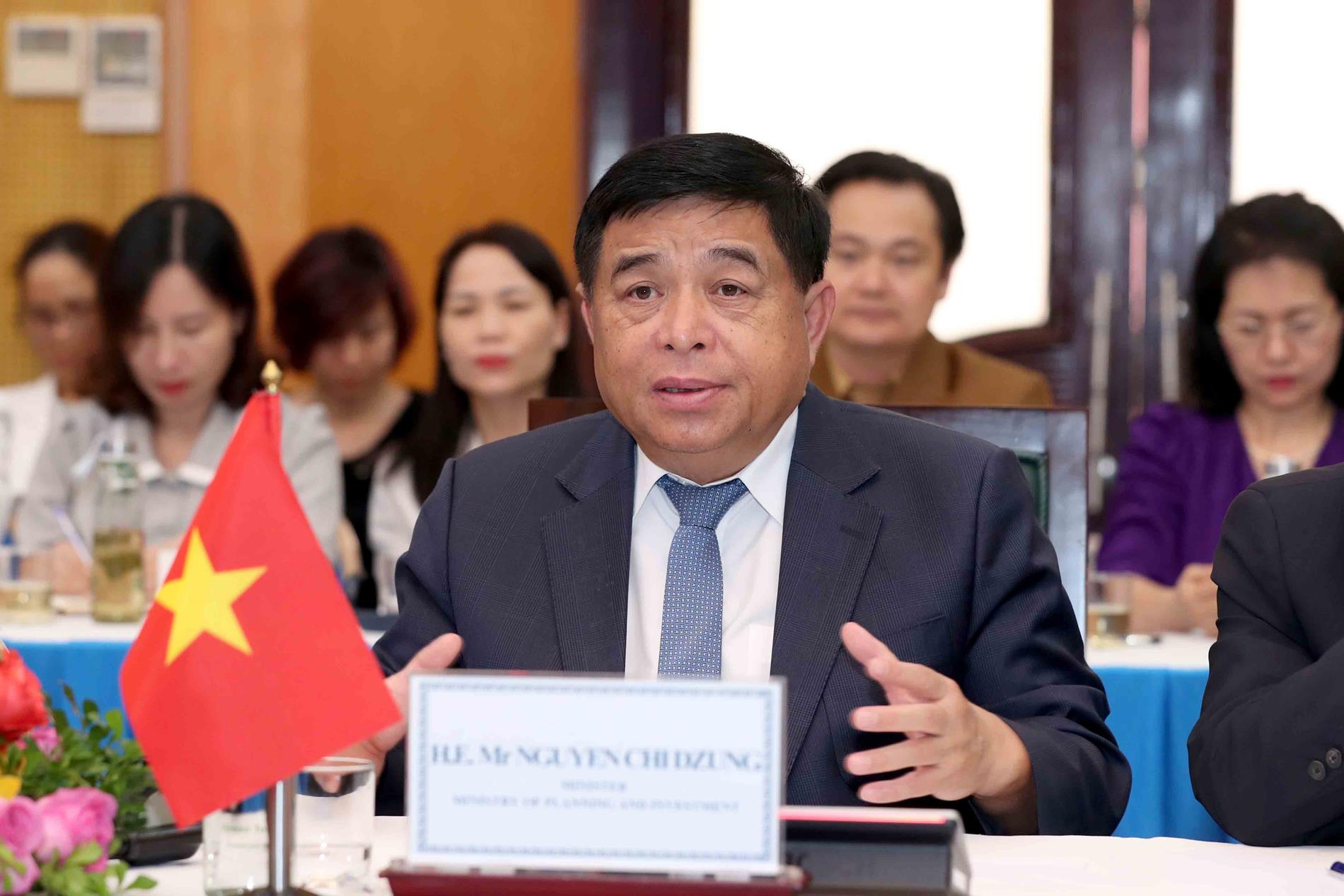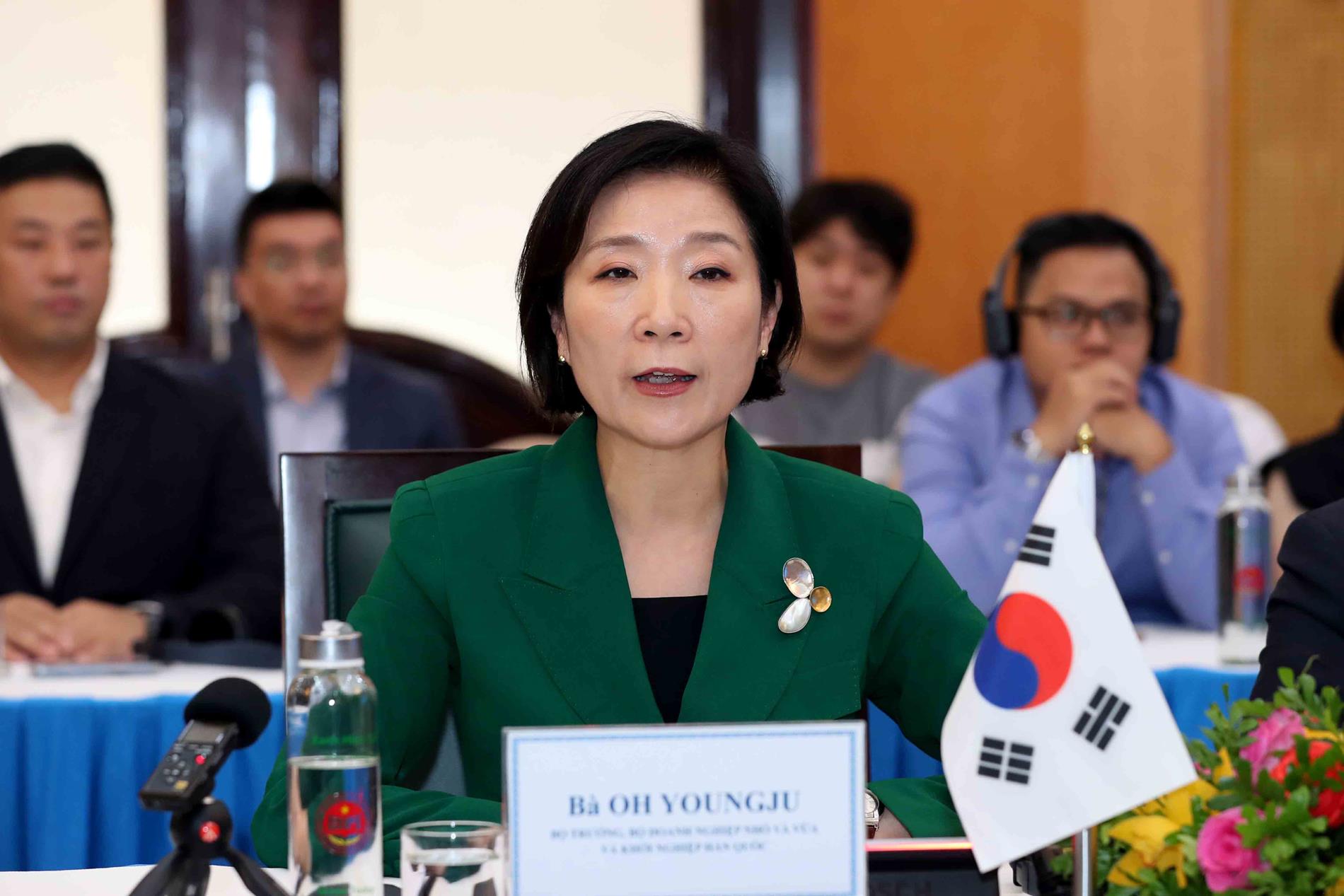(MPI) - Vietnamese Minister of Planning and Investment Nguyen Chi Dung and Korean Minister of Small and Medium-sized Enterprises (SMEs) and Startups Oh Youngju co-chaired the first meeting of their bilateral cooperation committee in Hanoi on August 28.
 |
| Minister of Planning and Investment Nguyen Chi Dung speaks at the event. Photo: MPI |
The meeting aims to realize commitments agreed at the Memorandum of Understanding (MoU) on cooperation between the Ministry of Planning and Investment (MPI) of Vietnam and the Ministry of SMEs and Startups of South Korea, and to enhance collaboration between the two countries’ SMEs.
South Korea became a major investor of Vietnam since 1990s. As of June 2024, South Korea had invested nearly 87.5 billion USD across more than 10,000 projects in the country, accounting for 25% of the total number of projects and more than 18% of the total registered FDI capital in Vietnam.
In the first six months this year, they poured 1.4 billion USD in Vietnam, ranking 4th out of 84 countries and territories investing in the country and a year-on-year increase of 16%. South Korea always remains Vietnam’s largest investors and the two countries officially upgraded their ties to a Comprehensive Strategic Partnership in 2022.
During Korean President Yoon Suk-yeol’s state visit to Vietnam in June 2023, Vietnamese Minister of Planning and Investment and Korean Minister of SMEs and Startups had discussed the formation of the cooperation committee to enhance mutual understanding among entrepreneurs, as well as promote collaboration in sectors where both countries have strengths.
An MoU on SME and startup cooperation was signed during Prime Minister Pham Minh Chinh’s visit to South Korea in July 2023. The MoU is expected to create new opportunities for investment, trade, and business connections between the two countries’ SMEs, contributing to innovation and sustainable development in both countries.
Speaking at the meeting, Minister Dng expressed his belief that collaboration between SMEs and startups will be further fostered based on the growing relationship of Vietnam and South Korea. Through the committee’s activities and the participation of research institutes and SME associations, the two sides will have chance to effectively implement joint projects, particularly in high-tech agriculture, food processing, pharmaceuticals, semiconductors and electronics.
He encouraged Korean businesses continue to trust and expand investment in areas where South Korea has strengths and Vietnam has high demand, such as digital economy, green economy, circular economy, sharing economy, and emerging industries like semiconductors, artificial intelligence (AI), hydrogen, and culture and entertainment.
“We hope that the Korean government and enterprises help Vietnamese firms to engage into the Korean and global supply chains”, the minister added, affirming the ministry’s commitment to supporting business development and making contribution to the socio-economic development and the fruitful relations of the two nations.
 |
| Korean Minister of Ministry of Small and Medium-sized Enterprises (SMEs) and Startups Oh Youngju. Photo: MPI |
For her part, Minister Oh Young Joo hailed the significance of the meeting since the two countries are at the finest development stage with effective cooperation at all spheres. She expressed her hope for concrete plans to implement the MoU between the two ministries, thus helping SMEs and start-ups to operate effectively in the time ahead.
Youngju said she looked forward to having concrete results in supporting SMEs based on the close coordination of the two ministries. She said, Korean enterprises consider Vietnam a potential market and have desire to expand investments here, suggesting both sides focus on proposing specific plans to support innovative startups and in other potential fields such as AI and the Internet of Things (IoT).
The action plan to implement the MoU for the 2024-2025 period is anticipated to focus on supporting professional exchanges, exchanging information on the business and investment environment, encouraging SMEs having investment projects, fostering bilateral cooperation programmes to develop infrastructure and business incubation, and promoting technology transfer and experiences in potential fields. The activities will also include support for SMEs and investors, establishment of public-private cooperation network and list of priority projects and initiatives to promote collaboration of the two countries’ SMEs./
Bao Linh
Ministry of Planning and Investment